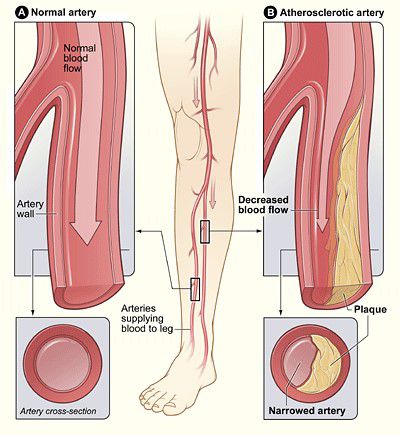Type “Varicose Vein Doctor” into your Google search and in seconds, you’re overwhelmed by results.
Each link points to a different website. Each site claims their “Vein Doctor” is the “best” and every practitioner claims to have the “bona-fides” to back-up these claims. Credentials span the continuum from Academic Institution Affiliations, (claiming to be X, Y or Z University Affiliated); to Chair-Personships (they “chaired’ this or that medical departments in the “Big Box” health care systems they came from (i.e. Kaiser, PAMF, or Sutter) to Medical Journal Publications…all this in an apparent attempt to equate administrative responsibilities with clinical excellence. Some of the bolder in the group even claim they trained at the best medical schools hoping to convince potential patients that by attending a great medical school they are the best physician for the procedure.
AN ESPECIALLY CONCERNING TREND IS A PHYSICIAN’S USE OF GOOGLE ADWORDS TO ADVANCE THEIR MESSAGE
If a vein doctor’s website shows up in your Google Search and you see that the listing starts with the word “AD” …be careful. It means that the owner of this practice is paying Google a special Advertising fee to get their name to the top of the search results. This is an attempt by this physician to “BUY LEGITIMACY”. Businesses PAYING google to display their ads above the practitioners who have EARNED this privilege is a great way for Google to make money. Unfortunately, it can be deceiving to people who think that because a doctor’s website pops up at the top of the search results that they must be the best. (On a separate note…If a physician’s website DOES show up at the top of the search results and DOES NOT have the word “AD” in front of it, IT IS a sign that this physician has many website visitors and that they have been around for a long time…Especially if this listing is followed by a large number of Google Reviews.) It also means that this physician has EARNED their reputation, and NOT purchased their website ranking. A word of warning to patients searching for an experienced vein care professionals. Anyone can pay to elevate their search rankings on Google; regardless of their experience.
IGNORE websites with paid “AD’s”, especially if they don’t have any verified Google reviews.
To make things even more difficult, it can be very confusing just trying to figure out what kind of doctor actually does varicose vein procedures. Some doctors call themselves “Vein Specialists”. Others call themselves “Vein Experts”. You’ll also see the labels “Phlebologist” and “Vascular Expert”. Finally, there is the “Vascular Surgeon”. You ask yourself, do all of these physicians fix varicose veins? If so, what’s the difference? (Learn more by clicking on the following link). https://www.southbayvascular.com/blog/vascular-surgeon-vs-phlebologist-vs-vein-specialist/ Every one of these “Vein Doctors” promises to rid you of your ugly, painful veins, leg swelling and non-healing ulcers. Every one of them posts photos showing off their work to prove their point.
Let’s face it, it’s confusing. All you really want is to get your veins “fixed” so that next time you get invited to a pool party you can wear shorts or a skirt again without being “mortified” by how bad your legs look. So, what’s next?
Lost in this hype, finding the right doctor to treat your varicose veins might seem impossible. Choosing the best doctor for your specific vein condition is a difficult decision and not one that you should take lightly. Only after serious consideration of the available options should this decision be made and in the best of all worlds, it should be made in consultation with your primary care physician…and this is the probably the most important message in this post.
LISTEN TO YOUR PRIMARY CARE DOCTOR
They’ve been in this community a long time and they know who is good and who is not. Their referral should be your number one reason to make an appointment with a Varicose Vein Doctor.
In the best of scenarios, patients should visit as many doctors as they can; interview them and question them about everything relating to their condition and their ability to help you…but remember, your primary care doctor has been doing this for a long time. They’ve got the benefit of having seen the results from different doctors and on the strength of their recommendation, you should have the confidence to know that you are making the right choice.
Here are a few things varicose vein patients should keep in mind:
- Remember, these are your legs. You deserve the best and you deserve to “Love Your Legs Again”.
- Don’t be frightened to ask your doctor tough questions.
- Don’t just ask your vein doctor how long they have been in practice, ask them how long they have been doing these specific kinds of vein procedures. Ask them how many of these procedures they’ve done.
- If your doctor is in private practice, ask them how long they have owned their own practice. This is important because getting things done right in a private practice is significantly more difficult than getting work done in a University Hospital or Big Box Medical System.
- How many of these procedures have you done RECENTLY….if they do less than 25-30/ month, you might want to seriously consider finding another option
- What kind of complications might you expect…every person is different and if your doctor says your legs will look as good as they did when you were 20, you might want to consider seeing someone else.
- Who does your ultrasounds…are your ultrasound techs RVT’s (Registered Vascular Technologists?) Are they done “in-house” by full time Vascular ultrasonographers or are they done by “travelling” ultrasonographers who just work in their office a few times a week and who are not full time employees of the medical office.
- Most importantly, is your Vascular lab IAC Accredited? This is especially important as your doctor will make their diagnosis on the basis of your ultrasound report and an IAC accreditation guarantees the best of the best studies are being done at that particular lab.
- Who reads the ultrasounds….is it an RPVI registered physician, not simply a radiologist… as the two physicians will look for vastly different signs relating to vascular disease and health. Keep in mind if the study isn’t read correctly, the procedure can go poorly.
- Finally, ask your “Vein Specialist” about what happens if you have a complication Ask your provider if they have “Admitting privileges” at the local hospital in the event something goes wrong during the procedure and what their plan is if their procedure fails.
EXPERIENCE COUNTS WHEN IT COMES TO YOUR HEALTH!
South Bay Vascular Center and Vein Institute brings 24 years and 20,000 vein procedures to you as our patients. As the leading independent Vascular Surgery practice in the San Francisco Bay Area, more local independent physicians refer their vein patients to Dr Kokinos than to any other vascular surgeon in the greater Silicon Valley Region.
WE OFFER HOPE WHEN OTHER SAYS THERE IS NONE!
Call us today at 408-376-3626 to schedule your vein consultation

